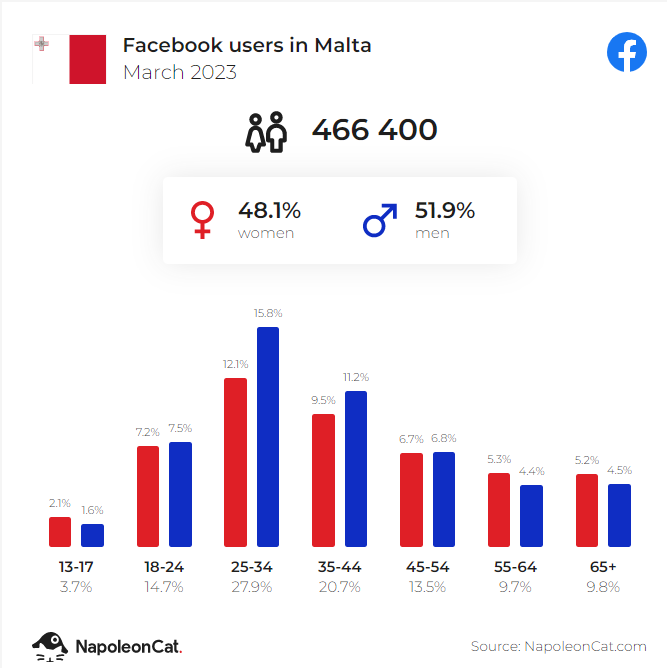Almost everyone in Malta is on Facebook. The social media platform not only enables fluid interpersonal connections but also has its own sprawling marketplace for the exchange of goods between individuals and businesses. But do consumer rights apply to such online platforms?

In Malta alone one can find tens of thousands of listings of products available by individuals looking to rid themselves of old items or businesses looking to expand their visibility.
Another platform that was more popular before the social media marketplace came around, was Maltapark. While it is not talked about as much nowadays, it’s still an active space of exchange.
Making a purchase through such a platform is synonymous with taking a risk to buy something cheaper, but at a greater risk of it being faulty. However, there are instances where a consumer can be protected through these platforms.

BusinessNow.mt reached out to the Malta Competition and Consumer Affairs Authority (MCCAA) to understand whether the rights of consumers apply to such platforms, and whether businesses making use of the platforms, or even the platforms themselves, have any responsibilities.
“Consumer protection legislation applies equally to platforms as it does to brick-and-mortar shops. Legal obligations apply in all cases and make no distinction if these are on a webpage or on a social media platform. There is also no distinction in the obligation between new or second-hand products,” explained the spokesperson for the MCCAA, however, this only applies if the seller is a professional trader.
If the person making the sale is an individual clearing out their garage, then they don’t have the same obligation to consumers.
But how can a consumer know whether they’re buying something from a professional trader or an individual?
The MCCAA spokesperson mentioned the Omnibus Directive, an EU directive on consumer rights, which introduced a number of obligations for platforms.
“Online platforms must provide consumers with general information on the main parameters used to determine the search result ranking; information on whether the third party offering the goods or services is a trader or not, and if the seller is not a trader, consumers should be informed that consumer protection law does not apply to the sales contract as consumer law applies only in the case of a business to consumer transaction.”
A cursory look through both these marketplaces, however, shows that you won’t be very clearly informed whether the person selling is in fact a professional trader or simply an individual, which requires consumers to be extra-vigilant.
Whenever a consumer does make a purchase from a conventional store, or a professional trader, two guarantees come into play. Legal guarantees and commercial guarantees.
The legal guarantee is regulated by the sale of goods regulations which sets specific rules with regards to how goods sold to consumers should be supplied, i.e., goods provided to consumers must be as described in the sales contract, be of the quantity and quality agreed, and must possess the functionality, compatibility and interoperability as required by the sales contract.
If the requirements are not met, consumers may request a free remedy from the seller, which could result in either having the item replaced or repaired, and the solution must be provided within a reasonable time and without causing any significant inconvenience to consumers, whilst considering the nature of the goods and the purpose for which the consumers require them.
The commercial guarantee is then given voluntarily by sellers, which provides additional benefits on top of the legal guarantee.
Given that the products are being advertised online, the MCCAA spokesperson said that there are additional legal obligations which protect consumers.
“This includes, amongst others, a requirement to have detailed information on the product’s or service’s main characteristics, the total price inclusive of taxes, whether the price was personalised on the basis of automated decision-making, information on the right of withdrawal, as well as payment and delivery arrangements.”
The right of withdrawal allows consumers to change their mind about the purchase they made, without giving a reason, within 14 days, allowing the consumer to return the goods and obtain a refund of the amount paid.
As the ability to make online purchase agreements gets easier, it’s evident that both consumers, and professional sellers need to keep up to date with their respective obligations, and platforms are obliged to do their part as well.
Christmas in the Park hits record of 120,000 attendees
The park’s main attraction was the illuminated pathway
‘Rabbit is one of the national dishes of Malta, so it’s important that we had it on the menu’ – Simon Rogan
Chefs Simon and Oli share their culinary inspirations from local seasonal produce
Inflation rate in November 2024 down to 1.3%
The inflation rate went down again after an uptick in October






